
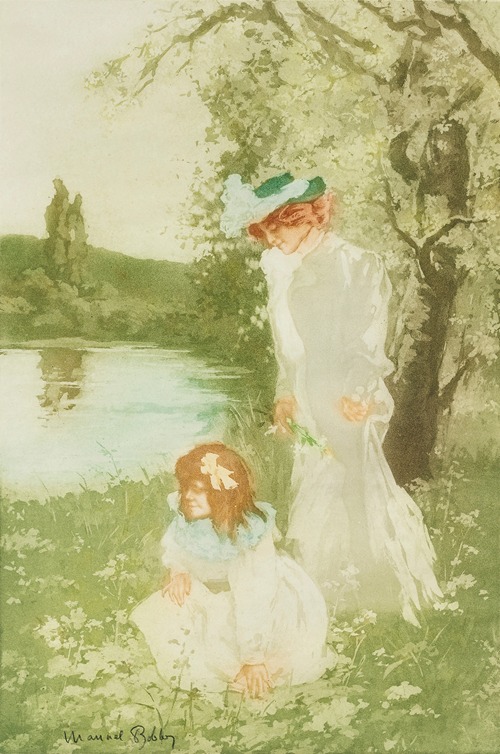
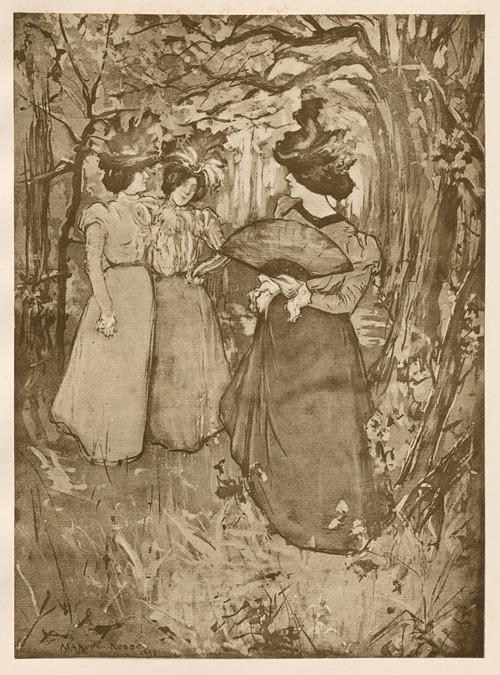
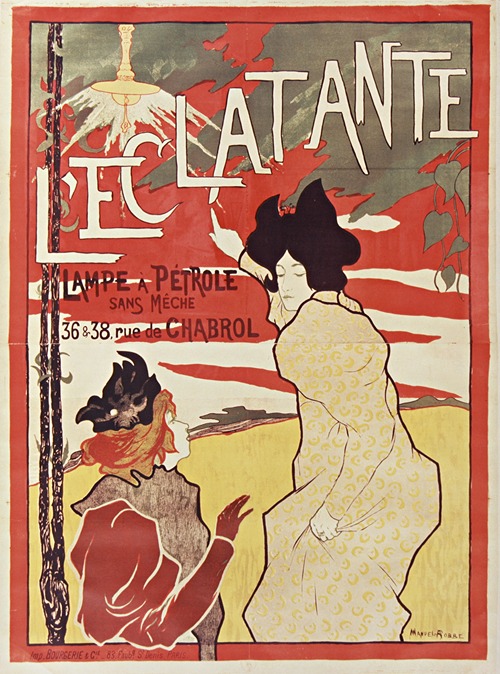
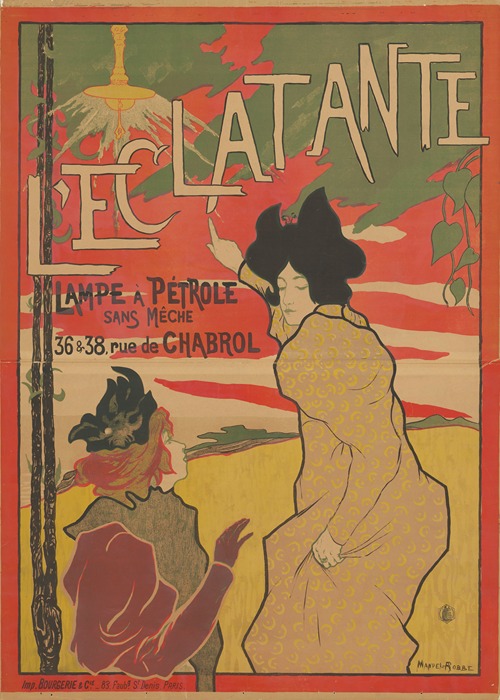
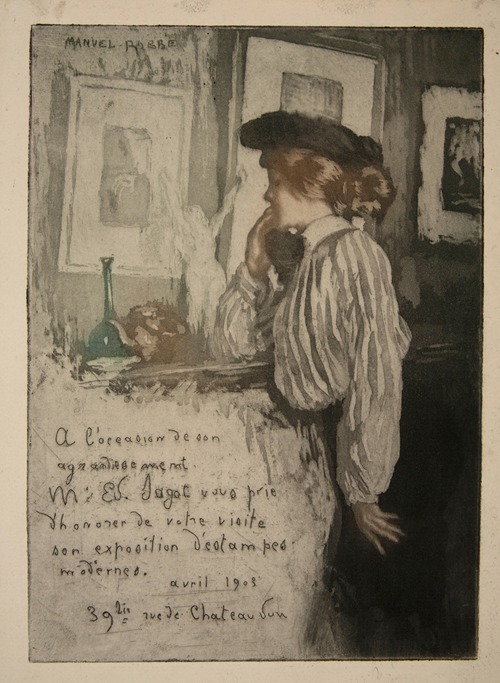
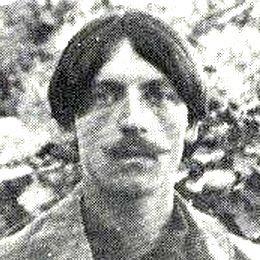

Manuel Robbe was a brilliant printmaker who masted the aquatint technique. He was born in Paris, shortly after the Franco-Prussian War. He soon began studies at the Lycees Condorcet with Louis Legrand. In the early 1890’s Robbe enrolled at the Academie Julian and later, at the prestigious Ecole des Beaux- Arts. Here, he learned the intricacies of etching and aquatint from master etcher Eugene Delatre. He exhibited regularly at the Salons of Societe des Artistes Francais and in 1900, he received a bronze medal at the World’s Fair for his contribution to printmaking.
In the beginning of his career, Robbe began to incorporate many innovative etching techniques into his artwork, such as, the sugar-lift, aquatint and “à la poupee.” His technique was developed over several phases. He painted his design with a mixture of sugar, India ink and gum arabic on a zinc plate. The plate was then covered entirely with a varnish. By immersing the plate in water, the sugar would melt, leaving a thin white line. Resin was added and the plate was heated from the bottom. The plate was placed into an acid bath, to bite the lines and establish line intensity. Finally, Robbe painted the plate with an oil brush made of rags called “à la poupee.” Robbe would arrive with new shades of color with each impression, because he would have to paint the plate each time an impression was pulled. He always succeeded in giving his aquatints great intensity, unique color diversity and extraordinary painterly effects.
Robbe was influenced by the most of the important nineteenth century artists such as Degas, Renoir, Legrand, Chahine and Lautrec. Robbe delighted in depicting women. He was known to show the individuality of his female subjects, while celebrating their beauty. His prints chronicled the emerging status of women as decision-makers and connoisseurs, as well as having the ability to judge and appreciate art. He also was able to show their sensuality, sociability, and the ability of the modern women to elegantly enjoy the simple pleasures in life.
Robbe’s innovative techniques, along with his sense of color harmony and his choice of subjects: stylish women, children in parks and promenades in the streets, helped lift the artistic level of color printmaking to unprecedented heights.





